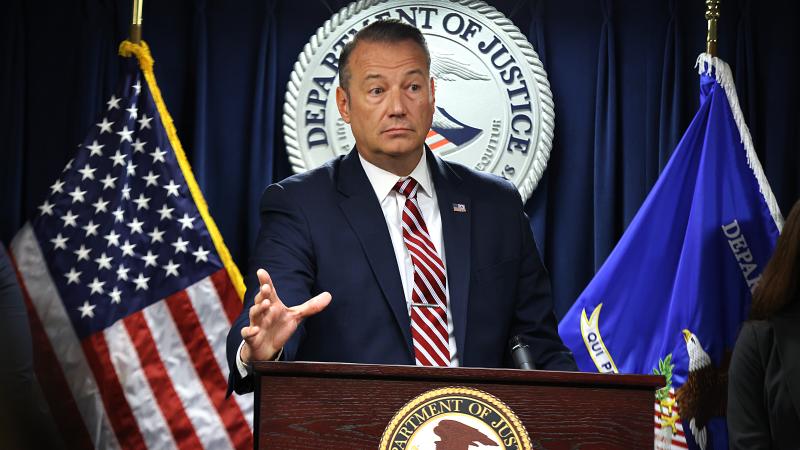U.S. intelligence says Ukraine does not produce bioweapons, conduct dangerous research
Haines said the material in the laboratories can still be dangerous.
Laboratories in Ukraine that received U.S. government assistance are not producing biological weapons or conducting dangerous research, U.S. Director of National Intelligence Avril Haines told the Senate Intelligence Committee on Thursday.
"Let me be clear, we do not assess that Ukraine is pursuing either biological weapons or nuclear weapons, which have been some of the propaganda that Russia is putting out," Haines told the senators.
Sen. Marco Rubio, R-Fla., pressed her further by asking her to clarify what the U.S. government does for the biological research programs.
"So as I understand it, Ukraine operates about a little over a dozen biolabs, and what they are involved in is Ukraine's biodefense and their public health response, and that's essentially what they're intended to do," she responded.
The U.S. government provides "biosafety" and "biodefense" assistance to Ukrainian laboratories, which they have done for other countries as well, Haines said.
Ukraine is not trying to create biological or nuclear weapons, the intelligence director said, adding that accusations of U.S. involvement are "classic" Russian propaganda.
"But again, I want to be absolutely clear that we do not believe that Ukraine is pursuing biological or nuclear weapons, that we've seen no evidence of that," she said.
"And frankly, this influence campaign is completely consistent with longstanding Russian efforts to accuse the United States of sponsoring bioweapons work in the former Soviet Union. So this is a classic move by the Russians," she added.
Rubio, Vice Chairman of the Senate Select Committee on Intelligence, pointed out that the world is "coming off the trauma of COVID-19."
Republicans have been demanding more transparency on the origins of the COVID pandemic, with specific focus on a lab in Wuhan, China. The Wuhan Institute of Virology, located in the city that the pandemic first started, received a U.S. government grant to conduct research.
Haines said the world should still be alarmed about the developments in Ukraine, regardless of the research that occurs in the labs.
"We have to be concerned in the same way that we have to be concerned about the nuclear power plant or other facilities — that when they're seized, and if they're seized, that there may be damage done or theft," she said.
Two nuclear power plants in Ukraine, Chernobyl and Zaporizhzhya, were seized by Russian forces. The International Atomic Energy Agency said it is "extremely concerned" about reported problems at the plants since they were captured.
Haines said that the Russians may "misuse some of the material" in the biolabs. Even if the specimens cannot be used as weapons, they "nevertheless can be used in dangerous ways or that can create challenges for the local populations," she said.















